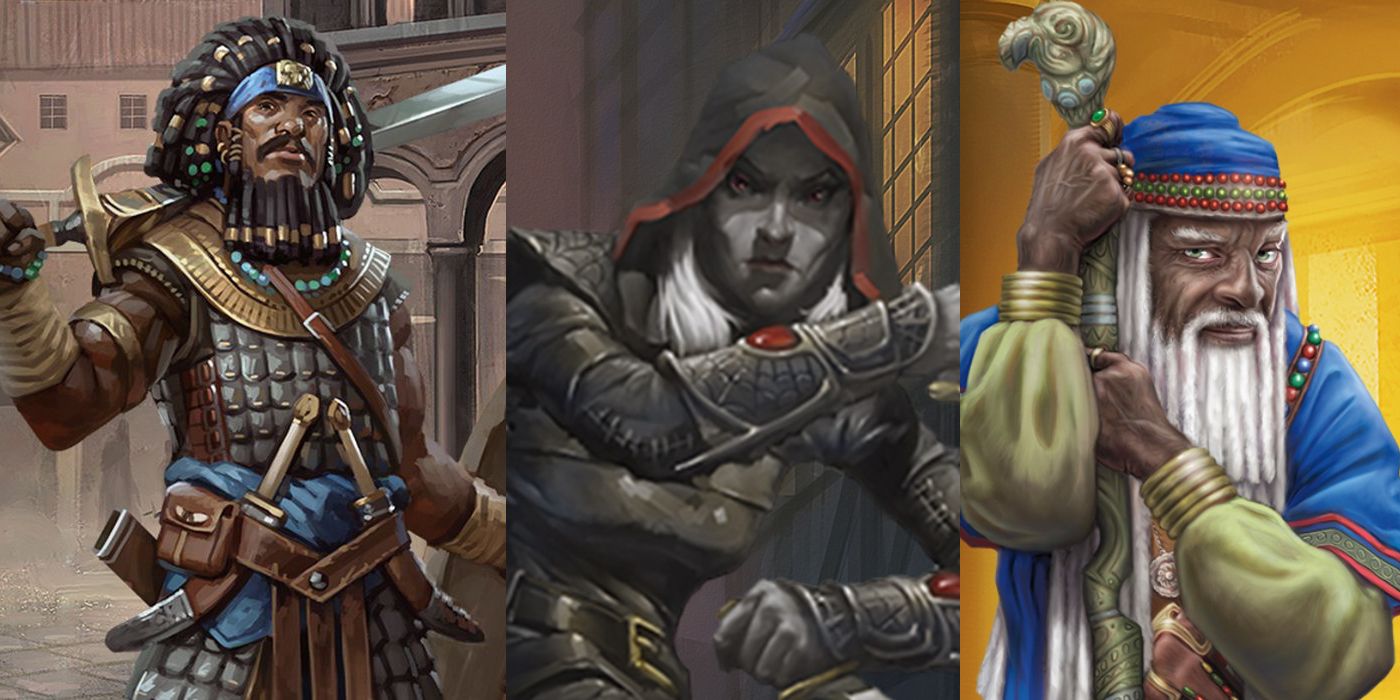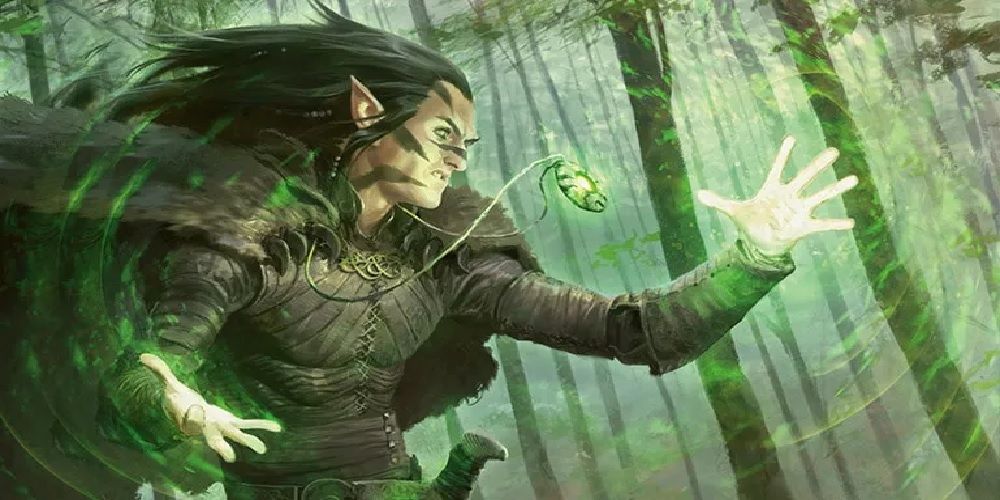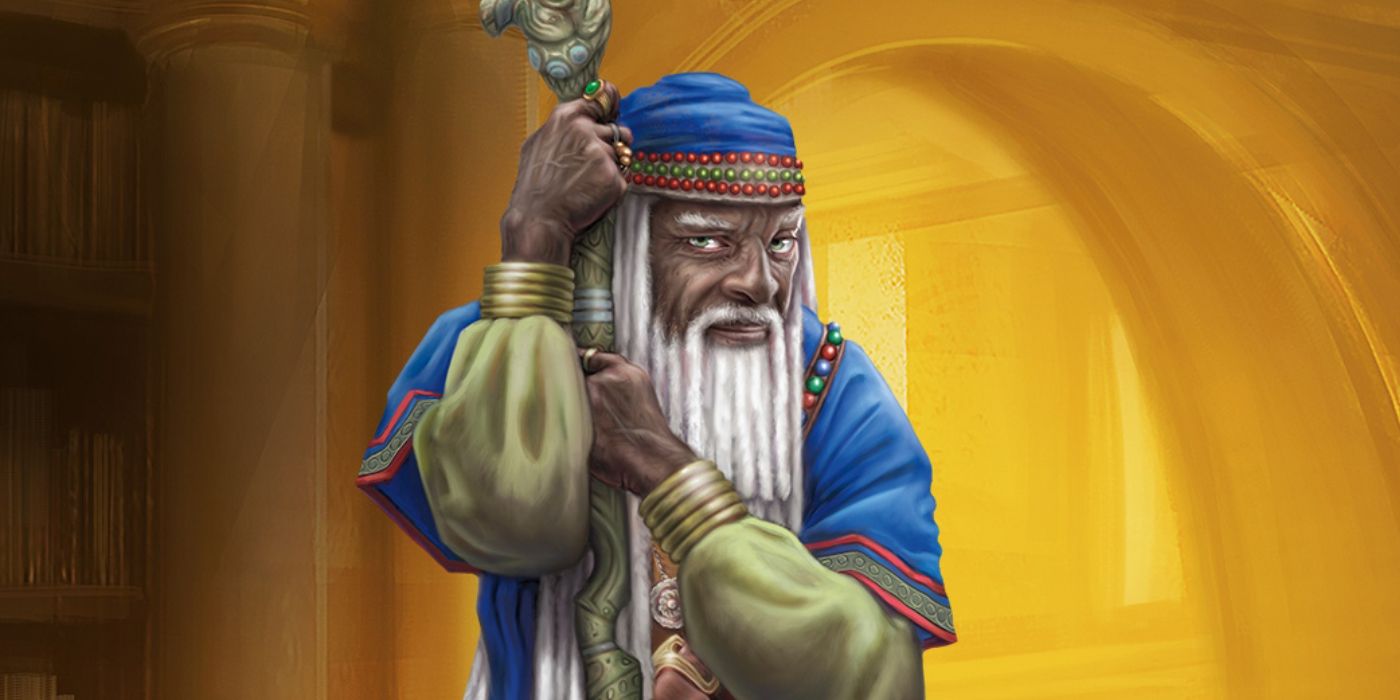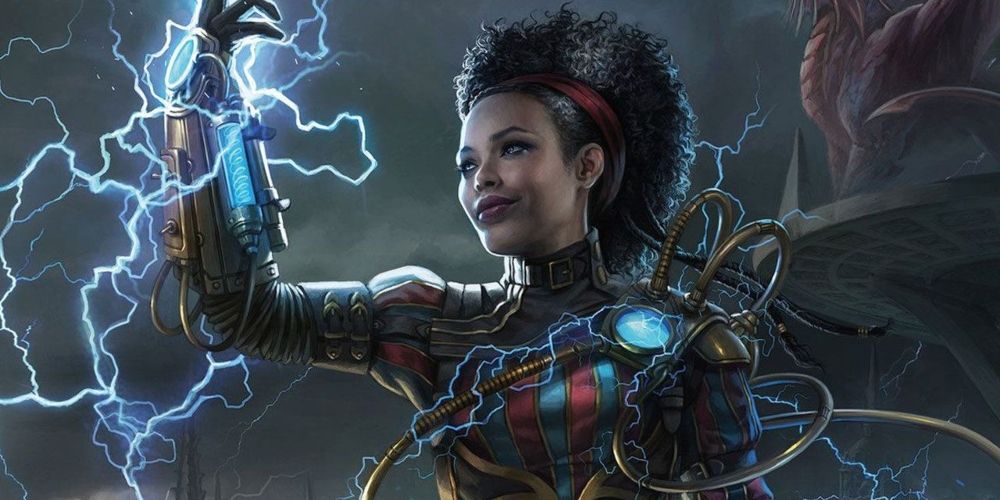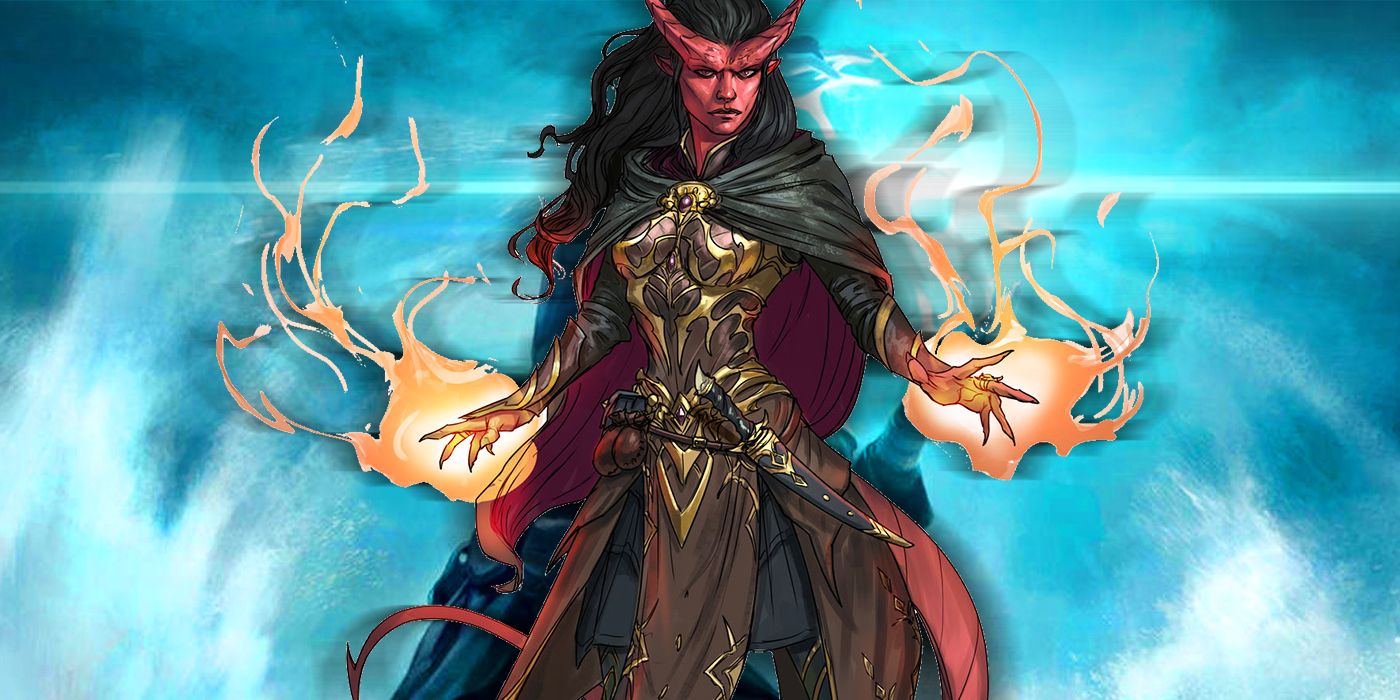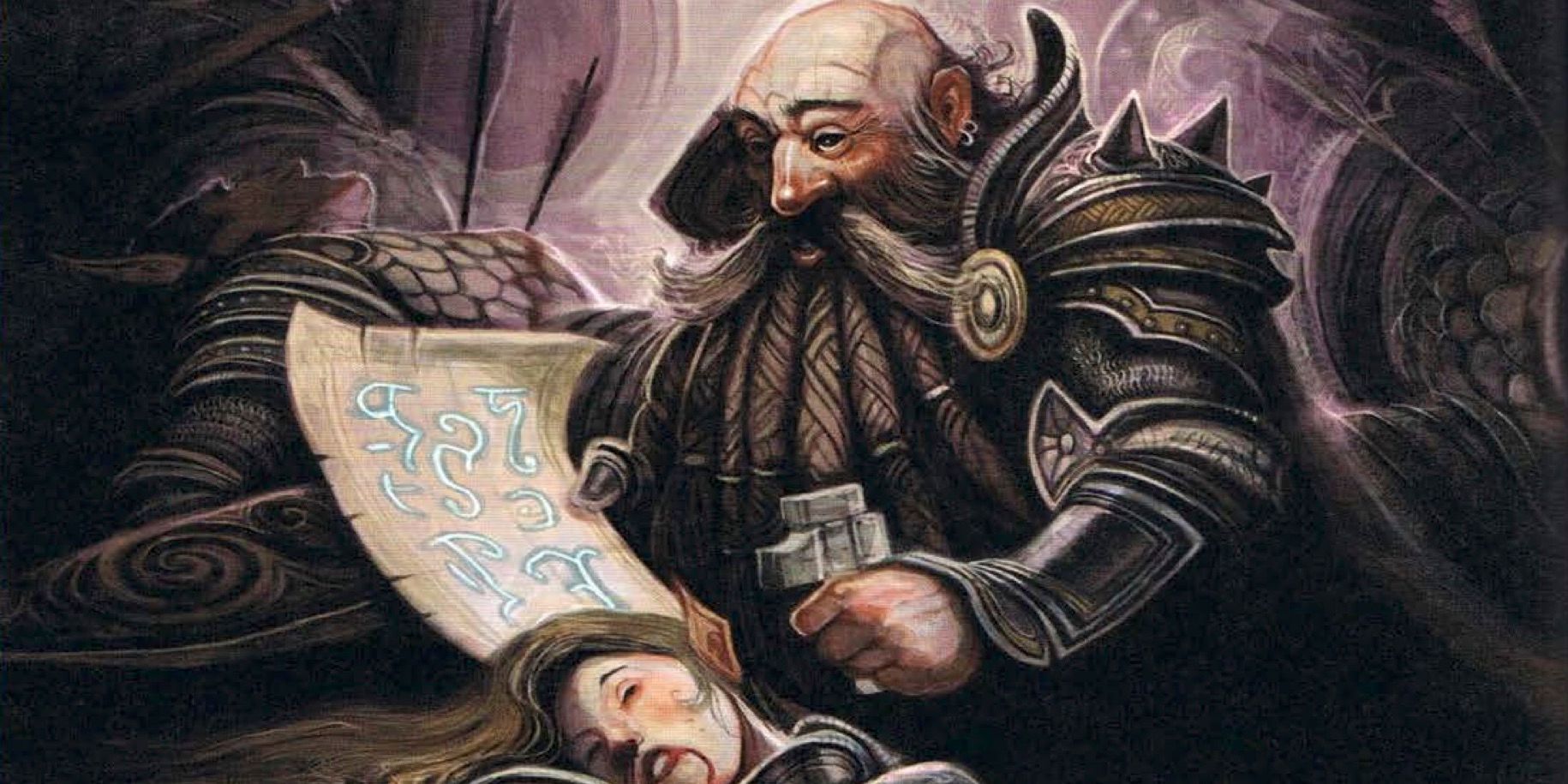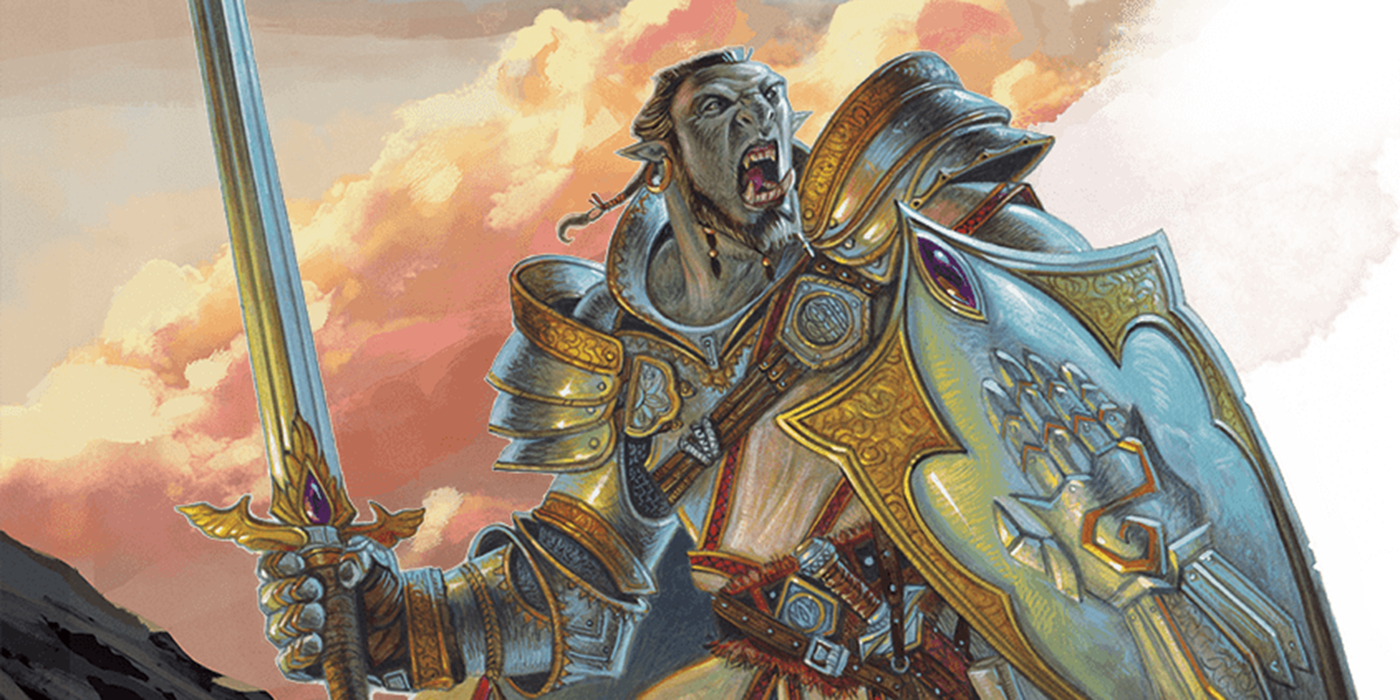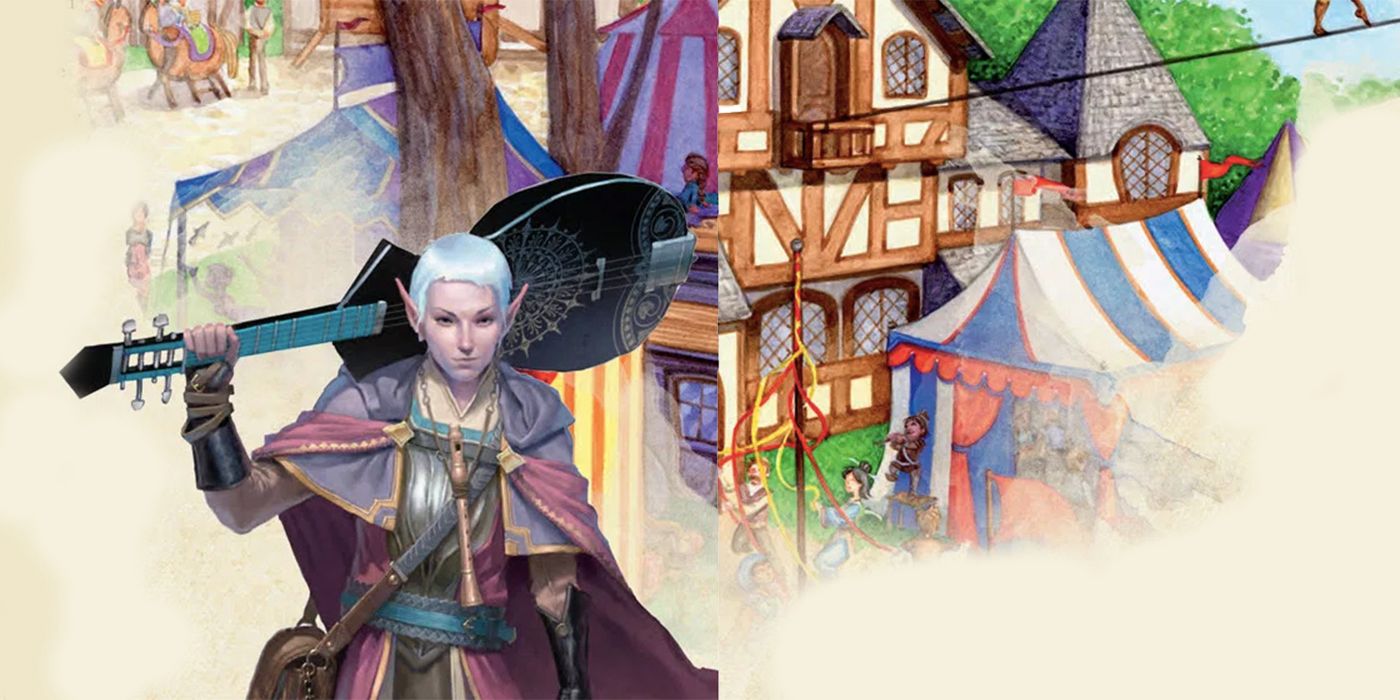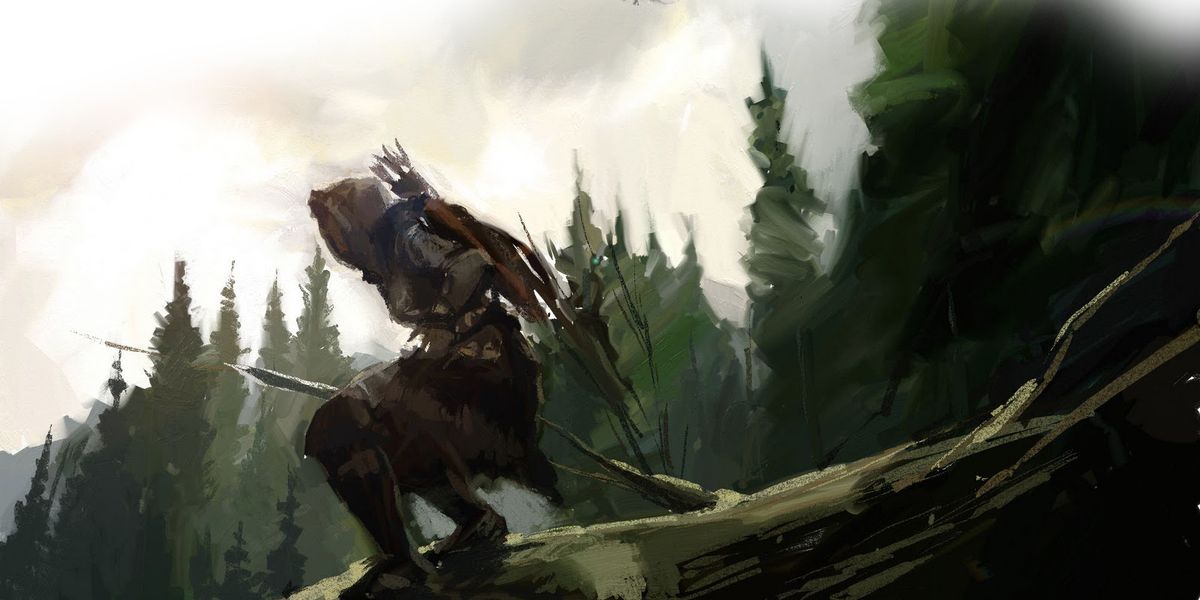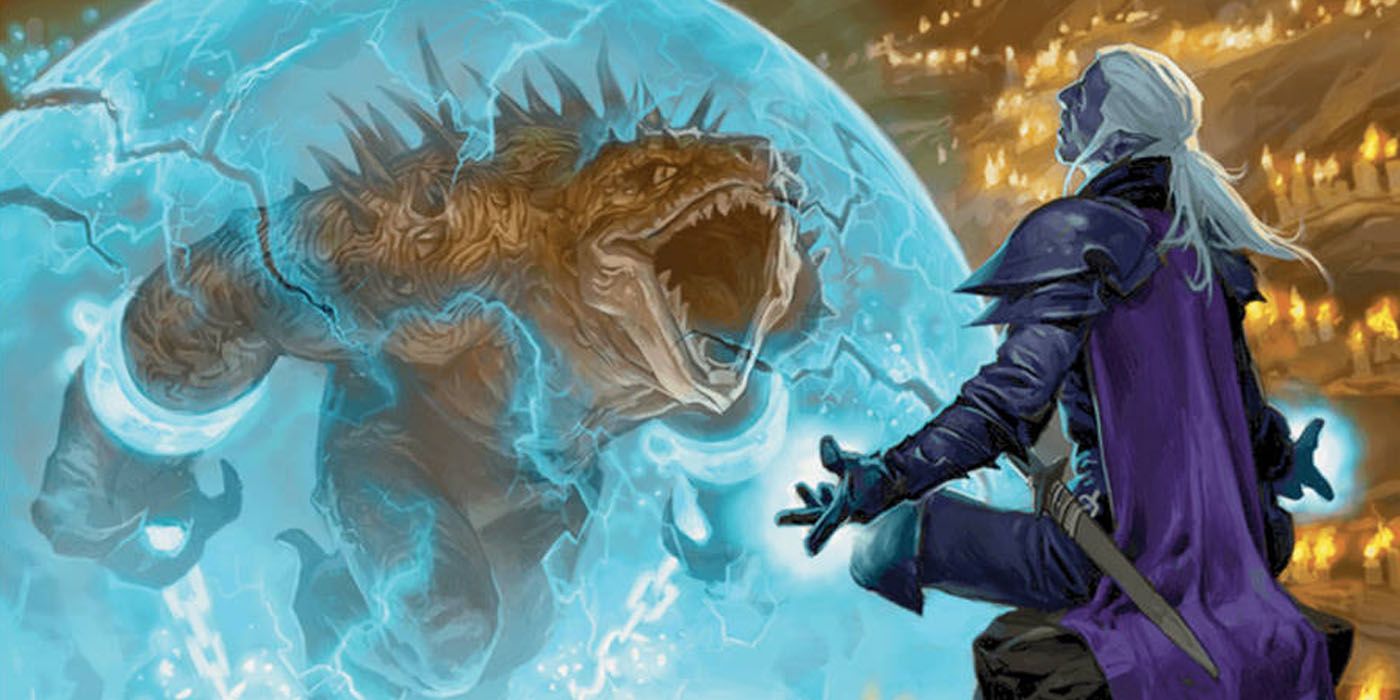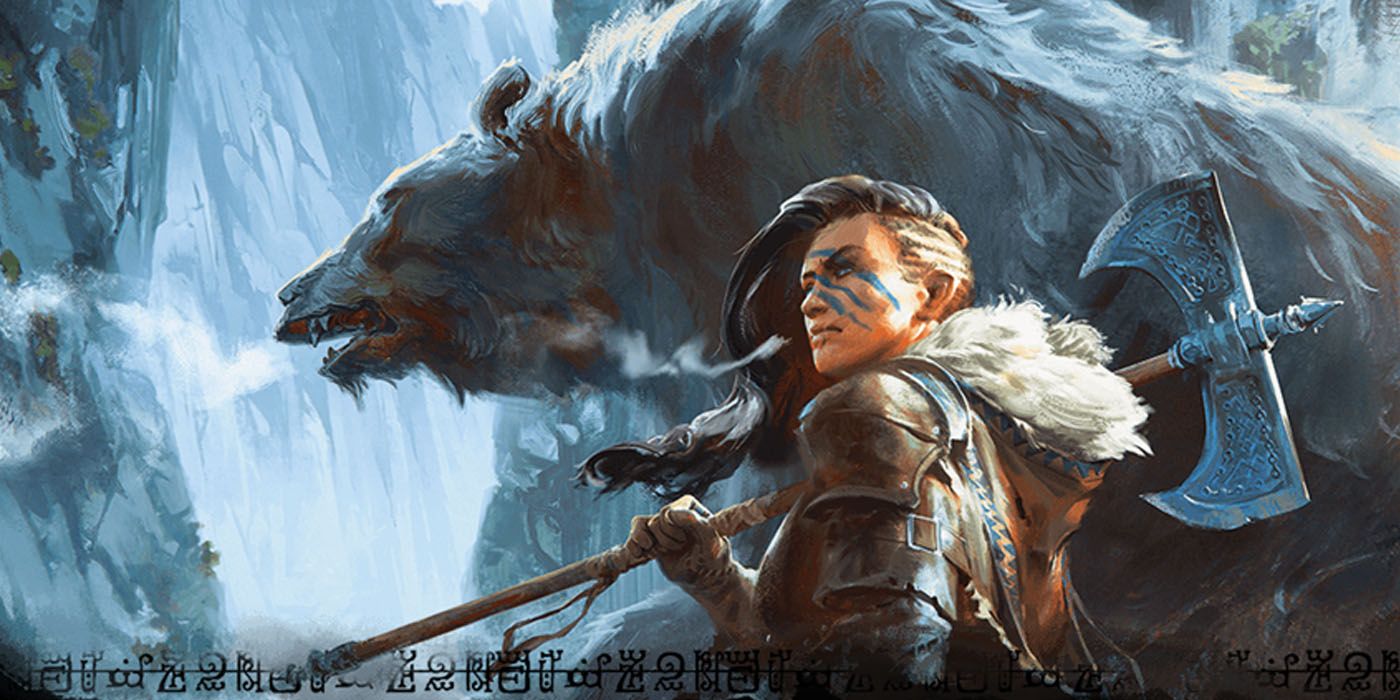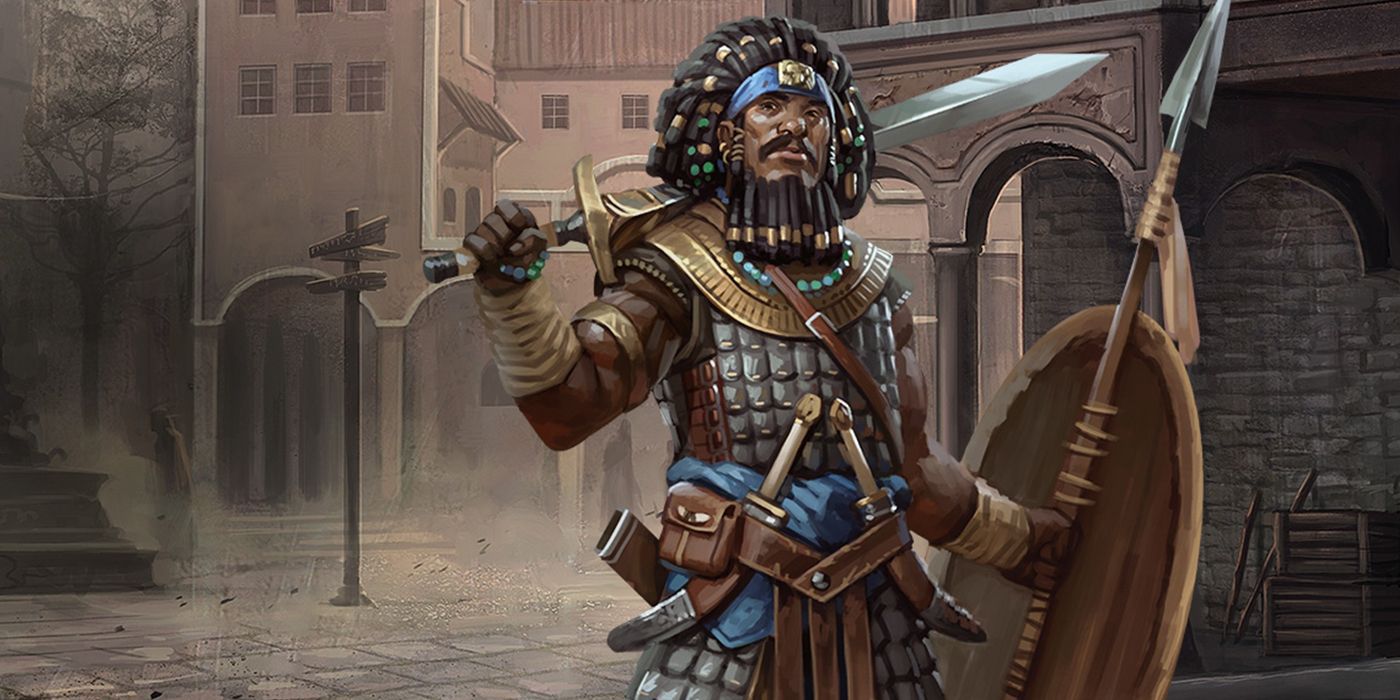The Dungeons & Dragons classes are extremely familiar to experienced players, with many choosing their favorite after trying out dozens of characters. New players, on the other hand, will be jumping into the deep end without much prior knowledge. D&D's classes vary widely in terms of complexity, so some are much easier for new players than others.
Since there are thirteen main classes, new D&D players have a lot of options in front of them. Fortunately, every one of these classes is possible for a new player to pick up, especially if they have prior experience with video game RPGs. That being said, anyone nervous about learning D&D can look to some of the more straightforward classes to ease them into the experience.
Updated September 24, 2022 by Declan Lowthian: While some classes are undoubtedly easier for beginners than others, the relatively slow level progression in D&D means that even the most complicated classes start out somewhat simple. This list has been updated to include every class, though new players who are worried about grasping all the rules should still consider picking one of the easier classes to start with. There is plenty of time to try out all that D&D has to offer.
13 Druids Have Spells And Can Shapeshift
Druids are spellcasters in tune with the wild places of the world. They can cast a huge array of spells, but their signature ability is to turn into animals. This gives them a ton of options in both combat and exploration. While any class can be fine for new players, druids have a lot of moving parts.
Pros for new players:
- Druids have unique and exciting mechanics that reward creative thinking.
- Casting spells in humanoid form and fighting in melee in animal form gives new players exposure to most of what D&D has to offer.
Cons for new players:
- Druids have many different resources to keep track of, and some subclasses add even more.
- Transforming into animals requires the player to learn multiple other creatures' stats, which can be a lot to keep track of.
D&D druids must prepare their spells every day, choosing from the full list of spells available. This means having to learn about dozens of spells, even at early levels, just to keep track of everything at their disposal. Making the best use of their Wild Shape ability also means doing a lot of reading to learn the stat blocks of different animals. All in all, it is reccomended that most players save the druid until they've had a chance to try out a simpler spellcasting class.
12 Wizards Learn A Whole Lot Of Spells
Wizards are the most potent spellcasters in D&D. Since huge lists of spells can be somewhat daunting for new players, they are not necessarily the best place to start. Spellcasting is not terribly hard to understand, however, so anyone with their heart set on playing a wizard should definitely give it a shot.
Pros for new players:
- Wizards are a staple of fantasy fiction, so new players have a lot of sources of inspiration.
- It can be fun to immediately have access to the wide variety of spells in D&D.
Cons for new players:
- Wizards can learn an enormous number of spells, which can be a lot to keep track of.
- There are more wizard subclasses than any other class, so new players might find themselves faced with too many options.
The most important thing to consider when building a D&D wizard is which school of magic they will study. Every spell in D&D falls into one of eight schools of magic, and a wizard can choose to specialize in any of them. Reading through the spell list will give players a good idea of which school they want to focus on, since each school's spells work in very different ways.
11 Artificers Create Magical Objects
The newest class in D&D, artificers are magical scientists and inventors. They are a very wide-ranging class, covering everything from timid alchemists focused on supporting their allies to front-line warriors with magical power armor. Since they were added later in D&D 5e's lifetime, artificers are a bit more complicated than D&D's other classes.
Pros for new players:
- Artificers don't have nearly as many spells as sorcerers or wizards, so they can be a good way to play a high-magic class without as much bookkeeping.
- Players who are more used to science fiction than fantasy will have an easier time getting inspiration for an artificer than any other class.
Cons for new players:
- Artificers have a lot of very niche and unique mechanics, so learning to play one isn't very transferable to other classes.
- Some of the artificer subclasses really ramp up the complexity from the base class.
At the first few levels, an artificer will be straightforward enough that new players should have no trouble. But as they grow in power, their number of options also grows in ways that might be offputting to newer players. However, they occupy a thematic niche that no other class really covers, so anyone super excited about playing a magi-tech adventurer should give the artificer a go.
10 Sorcerers Have Magic In Their Blood
The antithesis of the wizard, sorcerers gain their spells through an innate talent rather than through study. Magic is a complicated part of Dungeons & Dragons, so playing a sorcerer will take some getting used to. Fortunately, sorcerers don't need to worry about choosing their spells each day, a process referred to as "preparing." They simply pick their spells once and always have access to them.
Pros for new players:
- Sorcerers don't know as many spells as wizards, so it's a more manageable way to start as a full spellcaster.
- Each sorcerer subclass offers a very different flavor, so there's probably something that can match almost any character concept.
Cons for new players:
- Sorcerers get to customize their spells with sorcerery points, which can add a layer of difficulty to an already complex mechanic.
- Every sorcerer starts with their subclass at level one, so new players will have a lot of mechanics to learn upfront.
Sorcerers get a resource called sorcery points, allowing them to gain more spell slots and eventually customize their spells. This can be a lot to keep track of, but this feature doesn't really start kicking off until third level. This gives the player a chance to get used to their abilities in the meantime.
9 Clerics Can Do More Than Just Heal
Often misidentified as just a healer class, clerics are capable of much, much more. Clerics can be a perfect beginner’s class if someone wants to have a full suite of magic spells in addition to some decent weapon options.
Pros for new players:
- Clerics function equally well in melee and as spellcasters, so new players don't have to worry about getting caught in a situation they aren't prepared for.
- Between healing, armor, and natural hit point totals, clerics are unlikely to die very easily.
Cons for new players:
- Clerics must choose their subclass at first level, so new players won't have a chance to get a feel for their character before committing.
- It's easy for a new D&D player to get stuck as the party's default healer, potentially making them feel like they don't get to participate in combat as much.
Clerics all pick a domain to reflect their patron god, and these domains give a wide range of new abilities. Most domains either give the cleric an additional cantrip (a spell they can use at will) or proficiency with heavier armor and better weapons. New players should look to their domain's features to help guide them in how to play their cleric.
8 Paladins Are Magically Blessed Warriors
Honor and patronage with purpose, the paladin is one part fighter and one part cleric. While that may seem complicated, their abilities all boil down to being better in combat and keeping their friends alive.
Pros for new players:
- Paladins are extremely durable, meaning a new D&D player won't really need to worry about their character dying.
- Playing a paladin is a great way to experiment with spellcasting while not relying on it completely.
Cons for new players:
- D&D puts a lot more emphasis on the roleplaying implications of each paladin subclass than any other class, so new players might feel they need to act a certain way in character.
- Paladins get a wide variety of incidental abilities not related to their spellcasting that can be difficult to keep track of.
Paladins are incredibly diverse, ranging from the highly defensive Oath of Devotion to the aggressive Oath of Vengeance, allowing for a variety of play styles. The early levels are great for beginners because paladins don't get spells until level two, and even then their spell list is limited to a handful of combat and support options.
7 Bards Are The Best All-Arounders
Bards are one of the most versatile classes in D&D, able to be stealthy fighters, powerful healers, or general spellcasters. Overall, they are a support class, boosting their allies with their Bardic Inspiration ability.
Pros for new players:
- Bards can function well in almost any scenario, so new players can explore every corner of their D&D campaign and feel safe in doing so.
- The bard spell list is full of interesting options, but isn't so expansive that new players will be overwhelmed.
Cons for new players:
- Bards are full casters in addition to being skill focused and having a variety of other abilities from their subclass, which can be a lot to keep track of.
- No D&D class has as many preconceptions about it as the bard, so new players may feel pigeonholed into playing a certain stereotype.
Bards have a reputation for requiring an extremely extroverted, performative player, but this is not the case. Anyone can play a bard, and they are a great choice for someone who wants to dip their toes into all three pillars of D&D: exploration, roleplaying, and combat.
6 Monks Are Fast And Deadly
Master martial artists and skirmishers, monks are a relatively straightforward class that gets more complex at higher levels. Their main ability, their pool of ki points, can be used to make extra attacks each turn, to move about the battlefield with greater ease, or even to stun enemies with a single punch.
Pros for new players:
- Monks are a relatively straightforward melee fighting class that has just enough mechanics to play with that they don't get stale.
- Most of the monk's complicated abilities don't come until the middle and late levels, so new D&D players will have a lot of time to adjust.
Cons for new players:
- Some monk options are much stronger than others, so new players may feel like they've chosen the wrong option once they reach later levels.
- Monks are fragile but are also designed to be fighting in melee, so they run the risk of dying very quickly at low levels.
Monks don't get access to spells without taking the right subclass at level three. But even without them, they have to manage their ki points and related abilities. This is very manageable, but it won't be as simple as some of D&D's other melee combat classes.
5 Rangers Hail From The Wilds
The ranger is a stealthy warrior most at home in the wilds. Rangers are capable combatants, but they also shine outside of combat thanks to a wide range of utility abilities and even some spellcasting. There have been several versions of the ranger printed over 5th Edition's run, as the initial release was met with mixed reviews.
Pros for new players:
- Like the paladin, rangers are mainly weapon and skill focused, but they get access to just enough utility spells to make them feel like a fully rounded class.
- Rangers are a lot tougher than rogues, so they let a player be stealthy without being in quite as much danger if they get caught.
Cons for new players:
- The ranger's rocky design history in 5th Edition has led to a weird gulf between subclasses, and a new player might find themselves torn on which one to pick.
- Rangers don't get a ton of new abilities as they level up, so a new player might feel left behind as their D&D campaign reaches higher and higher levels.
A ranger can be built in many different ways. Some fight in melee with multiple weapons, others prefer to stay far away and attack with a bow. Every ranger subclass in D&D offers a very unique new direction, but fortunately players have until level three to learn their character and decide which path to take.
4 Warlocks Barter With Strange Beings
The warlock is arguably the easiest spellcasting class to play, as they get very few spells at early levels. A warlock makes a pact with an otherworldly being in exchange for their mystical abilities, and choosing which pact to take is the biggest choice a new D&D player will need to make at first level.
Pros for new players:
- Warlocks have very few spells, but they recharge more often and are always cast at high levels, which means less micromanaging.
- The warlock's patron offers an immediate hook for roleplaying, something that some new D&D players may struggle with.
Cons for new players:
- Like artificers, warlocks have some very unique mechanics that won't translate well to learning how to play other classes.
- While some new players might appreciate the structure a patron brings to roleplaying, others might feel intimidated by having to create an entire in-universe relationship before they play their first game.
Each warlock pact gives a different suite of abilities, from the firey, devilish powers of the Infernal Pact to the beguiling, subtle powers of the Fey Pact. Since warlocks have very few spells to keep track of, a new warlock player can focus on exploring the story behind their character's pact.
3 Rogues Are Stealthy And Deadly
Rogues are D&D's stealthiest class, perfect for playing thieves, assassins, and swashbucklers. Their biggest advantage is their Sneak Attack ability, which lets them deal a huge amount of damage under the right circumstances.
Pros for new players:
- Rogues have enormously high skill bonuses, so new players will find themselves succeeding at what they are good at more often than almost any other class.
- Playing a rogue encourages just enough smart and creative thinking to be engaging, but doesn't require so much that it becomes overwhelming.
Cons for new players:
- Like with bards, some players may feel forced into playing a specific stereotype when playing a rogue.
- Certain rogue subclasses rely on specific secondary ability scores, so new players might find themselves locked out of level three options if they didn't plan "correctly" from level one.
Rogues are also the best D&D class for using skills, the array of non-combat abilities that cover everything from sneaking around to picking locks to fast-talking a guard. A new rogue player will have plenty of opportunities to think creatively and move into places the rest of the party might not be able to go.
2 Barbarians Go Wild In Combat
Anyone looking to play a straightforward character while still having some fun mechanics to use should definitely consider the barbarian. Their signature feature, Rage, allows them to enter a rage several times each day, protecting them from damage and letting them hit enemies harder.
Pros for new players:
- Barbarians are extremely survivable, so a new player can be reckless and make mistakes without having to worry too much about the consequences.
- The Rage feature makes barbarians interesting to play in combat without adding too many extra mechanics.
Cons for new players:
- Barbarians don't always have a lot to do outside of combat, so new players might feel like they're not able to participate in every aspect of D&D.
- The barbarian's aesthetics, both in their description and artwork, are fairly narrow in scope, which can leave some players feeling railroaded into playing a very specific type of character.
Barbarians also get a suite of other fun abilities, like being able to sense danger before it happens and move faster than others. Some people will say that playing a barbarian is an overly simple experience, but they have enough different features to keep things interesting yet manageable.
1 Fighters Are As Straightforward As It Gets
As their name suggests, fighters are D&D's premier combat class. They are masters of all weapons, can wear the best armor, and are very powerful on the battlefield. At the first few levels, fighters get the ability to regain some hit points and even attack multiple times in a single turn.
Pros for new players:
- Fighters let a player feel useful and powerful right off the bat without bogging them down with a lot of mechanics to keep track of.
- The wide variety of fighting styles means a fighter can be anything from a heavily armored warrior to a skilled archer and everything in between.
Cons for new players:
- Like rogues, some fighter subclasses require a specific ability score and new players might feel locked out of options they didn't know they wanted.
- New players may find that a fighter's simplicity gets tiresome at higher levels, especially if they are interested in pursuing D&D's more complicated mechanics.
Fighters are adept at many different fighting styles, so anyone looking to play a warrior of any kind will be able to find something in the fighter. Since they pick their main focus at third level, new fighter players will have plenty of time to figure out which path they want to go down.

